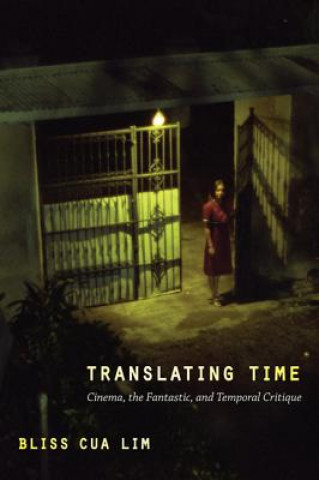
Code: 04938976
Translating Time
by Bliss Cua Lim
Under modernity, time is regarded as linear and measurable by clocks and calendars. Despite the historicity of clock-time itself, the modern concept of time is considered universal and culturally neutral. What Walter Benjamin call ... more
- Language:
 English
English - Binding: Paperback
- Number of pages: 360
Publisher: Duke University Press, 2009
- More about this

33.64 €
RRP: 37.35 €
You save 3.71 €

In stock at our supplier
Shipping in 14 - 18 days
You might also like
-

Ethnicities, Personalities And Politics In The Ethnic Chinese Worlds
269.82 € -
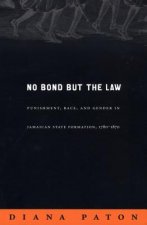
No Bond but the Law
36.06 € -

School Crisis Case Studies
49.86 € -

Speech in the English Novel
61.35 € -
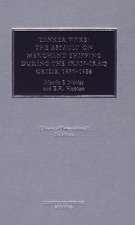
Tanker Wars
255.41 € -

Farbenerkenntnis
84.63 € -9 % -

Mastering the Art of Performance
112.23 €
Give this book as a present today
- Order book and choose Gift Order.
- We will send you book gift voucher at once. You can give it out to anyone.
- Book will be send to donee, nothing more to care about.
More about Translating Time
You get 84 loyalty points
 Book synopsis
Book synopsis
Under modernity, time is regarded as linear and measurable by clocks and calendars. Despite the historicity of clock-time itself, the modern concept of time is considered universal and culturally neutral. What Walter Benjamin called 'homogeneous, empty time' founds the modern notions of progress and a uniform global present in which the past and other forms of time consciousness are seen as superseded. In "Translating Time", Bliss Cua Lim argues that fantastic cinema depicts the coexistence of other modes of being alongside and within the modern present, disclosing multiple 'immiscible' temporalities that strain against homogeneous time. In this wide-ranging study - encompassing Asian American video ("On Cannibalism"), ghost films from the New Cinema movements of Hong Kong and the Philippines ("Rouge", "Itim", "Haplos"), Hollywood remakes of Asian horror films ("Ju-on", "The Grudge", "A Tale of Two Sisters") and a Filipino horror film cycle on monstrous viscera suckers ("Aswang") - Lim conceptualizes the fantastic as a form of temporal translation. The fantastic translates supernatural agency in modern secular terms, but also exposes an untranslatable remainder, undermining the fantasy of a singular national time and emphasizing shifting temporalities of transnational reception. Lim interweaves scholarship on visuality with postcolonial historiography. She draws on Henri Bergson's understanding of cinema as both implicated in homogeneous time and central to its critique, as well as on postcolonial thought linking the ideology of progress to imperialist expansion. At stake in this project are more ethical forms of understanding time that refuse to domesticate difference as anachronism. While supernaturalism is often disparaged as a vestige of primitive or superstitious thought, Lim suggests an alternative interpretation of the fantastic as a mode of resistance to the ascendancy of homogeneous time and a starting-point for more ethical temporal imaginings.
 Book details
Book details
Book category Books in English The arts Film, TV & radio Films, cinema
33.64 €
- Full title: Translating Time
- Subtitle: Cinema, the Fantastic, and Temporal Critique
- Author: Bliss Cua Lim
- Language:
 English
English - Binding: Paperback
- Number of pages: 360
- EAN: 9780822345107
- ISBN: 0822345102
- ID: 04938976
- Publisher: Duke University Press
- Weight: 564 g
- Dimensions: 235 × 156 × 23 mm
- Date of publishing: 21. September 2009
Trending among others
-

Mean Girls: The Burn Book Hardcover Ruled Journal
15.51 € -22 % -

The Animator's Survival Kit
37.57 € -1 % -

Jonesy
11.68 € -18 % -

Alien Next Door
11.58 € -35 % -

The Celestine Prophecy
11.38 € -20 % -

Advanced Techniques for the Modern Drummer - Jim Chapin
20.85 € -19 % -

The Art of Tangled
28.71 € -24 % -

Story
30.32 € -13 % -

Character Animation Crash Course!
36.77 € -

Adventure Time - The Enchiridion & Marcy's Super Secret Scrapbook
22.96 € -18 % -

Movie Quiz Book
21.45 € -

Into The Woods
11.27 € -28 % -

Back to the Future: The Ultimate Visual History - Updated Edition
39.28 € -27 % -

James Bond Movie Encyclopedia
29.41 € -17 % -

Film in Five Seconds
15.20 € -28 % -

Maya Deren
40.19 € -

Alien - Augmented Reality Survival Manual
28.71 € -18 % -

Harry Potter Pensieve Memory Set
27.19 € -20 % -

Art of Frozen
31.43 € -10 % -

I Am Not Your Negro
11.38 € -20 % -

Alfred Hitchcock. The Complete Films
32.23 € -20 % -

Oxford History of World Cinema
47.55 € -

Art of Frozen 2
28.81 € -21 % -

Alien Covenant: David's Drawings
42.01 € -16 % -

Alien: The Blueprints
29.71 € -21 % -

Lighting for Cinematography
32.33 € -14 % -

Alien
35.15 € -28 % -

Art and Making of Alien: Covenant
34.35 € -18 % -

Spiderman Into the Spider-Verse
34.75 € -21 % -

The Art of Princess Mononoke
31.22 € -12 % -

Hollywood Babylon
9.06 € -18 % -

Horror Cinema
20.44 € -20 % -

Animator's Survival Kit
40.09 € -28 % -

Alien: The Archive - The Ultimate Guide to the Classic Movies
38.08 € -22 % -
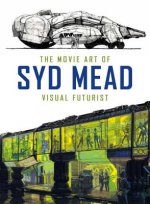
Movie Art of Syd Mead: Visual Futurist
38.08 € -14 % -

The Illusion of Life : Disney Animation
57.82 € -3 % -

Harry Potter: Page to Screen: Updated Edition
70.52 € -15 % -

Black Holes: The Reith Lectures
8.55 € -27 % -

How to Read a Film
38.68 € -

Dark Knight Trilogy
20.34 € -27 % -

Donnie Darko Book
14.80 € -26 % -

Fantastic Mr. Fox
27.60 € -22 % -

Harry Potter: A Pop-Up Guide to Diagon Alley and Beyon
65.08 € -13 % -

Film Noir
20.95 € -18 % -
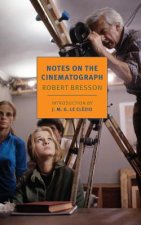
Notes On The Cinematograph
11.88 € -30 % -

Lynch on Lynch
17.62 € -16 % -
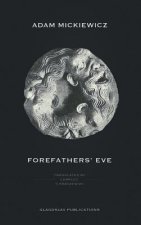
Forefathers' Eve
30.42 € -18 % -

The Stanley Kubrick Archives
20.24 € -9 % -

Burton on Burton
17.42 € -27 %
Collection points Bratislava a 2642 dalších
Copyright ©2008-24 najlacnejsie-knihy.sk All rights reservedPrivacyCookies


 15549 collection points
15549 collection points Delivery 2.99 €
Delivery 2.99 € 02/210 210 99 (8-15.30h)
02/210 210 99 (8-15.30h)